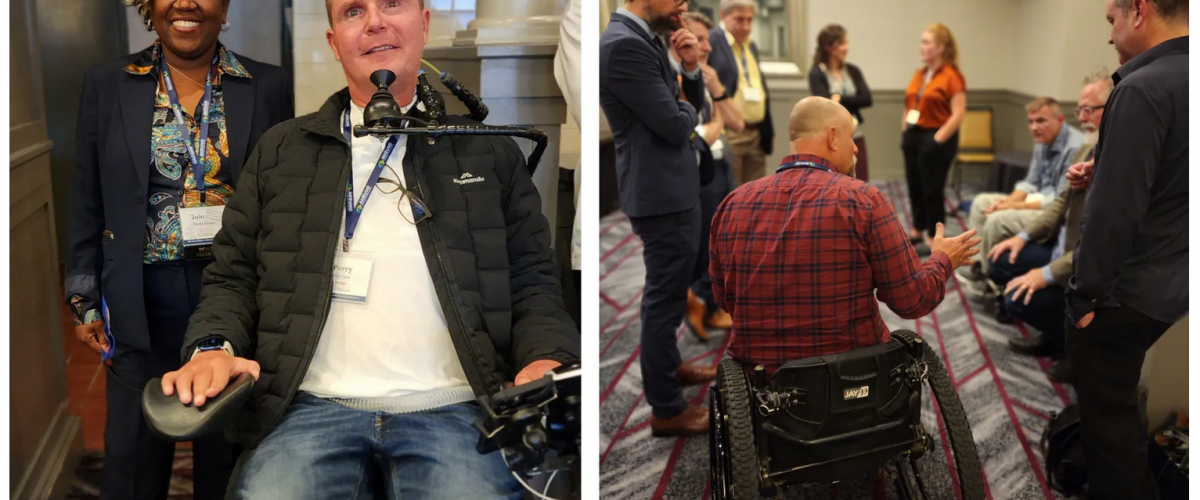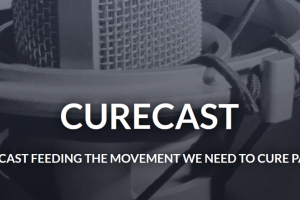When his son Gabriel became paralyzed, Matthew Rodreick turned tragedy into advocacy, reimagining the possibilities for curative therapies.
— Matthew Rodreick
(Minneapolis, MN) — October 9, 2023 — Fifteen years ago, Matthew Rodreick got the dreaded middle of the night phone call. His teenage son had broken his neck body surfing in Costa Rica and was paralyzed. This was life changing news for Gabriel, and for the whole family.
“You have no idea how helpless you are in the first stages of this,” said Rodreick. “You are caught up in a chaotic system of care that really has no answers for this condition. What many parents of those with spinal cord injuries do is adapt to a weird new normal and try to move on. That didn’t work for me. I dedicated my life to changing the outlook for people like my son. I advocated for changing the SCI landscape.”
Rodreick is now Executive Director for Unite 2 Fight Paralysis (U2FP), a nonprofit that represents the voice of people living with SCI, including their families/caregivers and loved ones.
U2FP hosts its 18th Annual Science and Advocacy Symposium in Minneapolis Oct. 20-21. And the landscape has indeed changed: this year’s meeting demonstrates the emergence of the state of Minnesota as a leading center for addressing the needs of people living with SCI.
U2FP 2022 Symposium
Minnesota’s Ascendance: No Accident
Symposium participants will describe how Minnesota became a powerhouse in SCI treatment development and patient care. Such a rise has not been by accident.
“The voice of the SCI community is beginning to be heard,” said Rodreick. “In 2017 U2FP-led advocates helped get a major SCI funding bill passed in the Minnesota legislature – this money, directed by the state Office of Higher Education, now supports $6 million every two years for research.
Rodreick said the SCI funding bill led directly to a major clinical trial for spinal cord stimulation (ESTAND) and numerous other studies. “The state money has also encouraged alliances among the state’s educational, medical, rehab, SCI community institutions, and SCI community advocates,” he said.
One recent example is the Minnesota Regional Spinal Cord Injury Model System (SCIMS), one of just 18 such elite federally funded rehab collaborations in the U.S., formed in 2021. The SCIMS represents the University of Minnesota, Minneapolis; Courage Kenny Rehabilitation Institute, Minneapolis; Mayo Clinic, and Rochester; Regions Hospital and Neuroscience Center, St. Paul.
Because the meeting is being held in U2FP’s hometown, many regional presenters and panelists will address science and medicine, but also industry, regulation, funding, and most importantly, life with the injury.
The 2023 Symposium will highlight work in spinal cord stimulation, one area of SCI therapy development where there is clear momentum. Presenters will come from academia, clinical medicine, and device manufacturing. For example, Nate Torgerson, a Senior Distinguished Systems Engineer at Medtronic, will describe his 30+ years of experience in the development of implantable neurostimulation systems, including the ones used in spinal cord injury.
“Nate is a central pioneering figure in the history of epidural SCS,” said Rodreick. “He will be joined by prominent researchers, by physical therapists, and by a six-member panel of people with SCI who will describe how they’ve used neuromodulation devices, implanted or skin-surface.”
The Symposium will also address the science of SCI regeneration. “We want to ask, why does nothing ever seem to emerge from promising animal research to humans,” said Rodreick.
The meeting will also include an open forum asking those living with SCI about the level of risk they would accept in a new treatment, and what their functional recovery priorities are.
U2FP has a program to place individuals with SCI as consultants in research labs across the U.S. Participants will be on hand to describe how this works, and why it is important for the scientists and for the community.
The U2FP Symposium is interactive and encourages participation from the lay audience. “We know the science can be difficult,” Rodreick said, “but we encourage those with SCI and their loved ones to ask questions and engage in discussions. We also hope they will join our cause to advocate for people living with SCI.”
About Unite 2 Fight Paralysis:
Founded in 2005, U2FP is a nonprofit dedicated to unify and empower the international spinal cord injury community to cure paralysis through advocacy, education, and support for research. Contact Executive Director Matthew Rodreick for more information, matthewrodreick@u2fp.org




